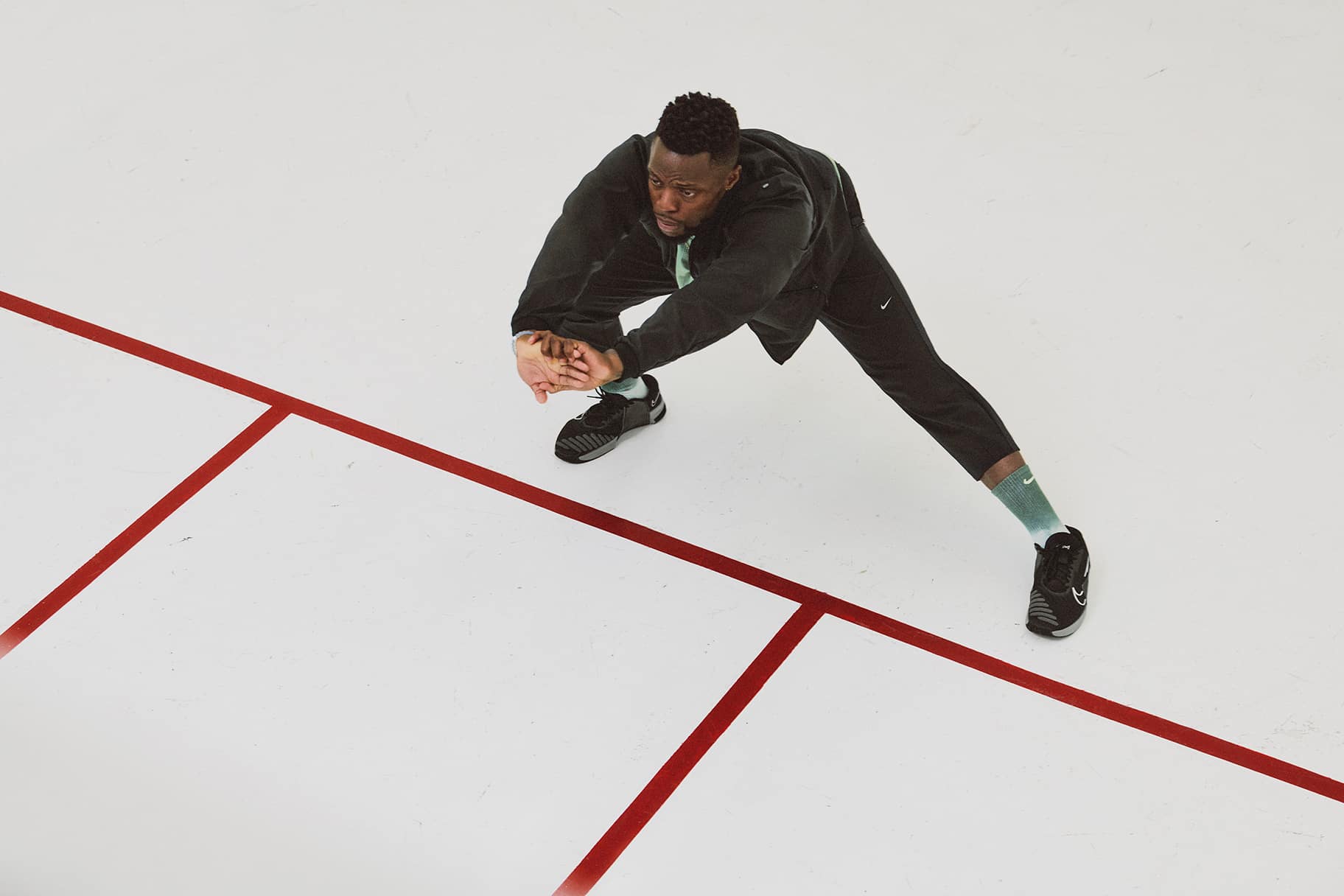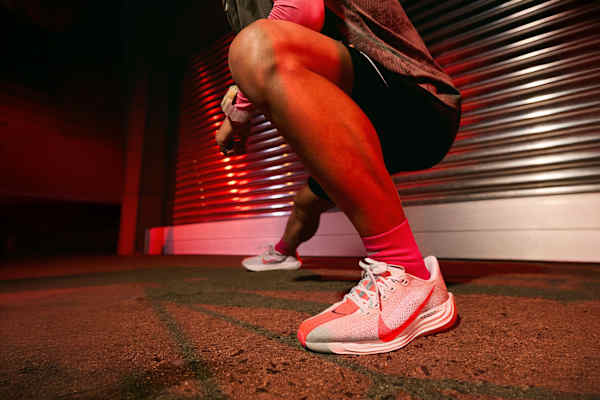5 best ways to recover after a run
Activity
Incorporate these recovery strategies into your training routine to avoid overuse injuries.

Recovery is critical for any runner, from the beginner learning to manage their mileage to the seasoned athlete going after their personal best.
"Recovery gives muscles, tendons and ligaments time to heal and rebuild, restoring energy levels and reducing inflammation", says Jay Silva, CSCS and RRCA-certified running instructor with TeachMe.To. "It also enhances performance by enabling consistent progress over time", he says.
What can happen if you don't prioritise recovery?
When it comes to achieving your athletic goals, a consistent training plan isn't enough. Including recovery strategies in your programme is essential to improving your performance—and supporting your overall health. "Recovery is essential for runners at all levels because it allows the body to repair, adapt and grow stronger after the physical stress running puts on the body", Silva says.
Running is a high-impact sport, which means it's harder on the body than a low-impact exercise like swimming. As Raquelle Felder, PT, DPT and owner of San Diego Mobile Rehab and Physical Therapy, points out, your muscles develop micro-tears after a tough workout. "These micro-tears are normal and are healed with proper recovery", she says. That's why the ideal training programme includes a balance of both high- and low-impact movements that encourage recovery.
"Without proper recovery, runners risk overtraining, burnout and injuries that can sideline them for weeks or even months", Silva says. Prioritising recovery also enables your body to repair damaged muscles so that they grow stronger and are prepared for the next workout.
How to recover after a run
There are so many ways you can boost your recovery post-run. Ahead, learn which recovery strategies are most effective for runners, so you can continue to train sustainably.
1. Refuel immediately after your workout
"Recovery begins with fuel", says Leo Hipp, a performance physiologist at Human Powered Health. The sooner you can begin refuelling post-workout, the faster your muscles get the nutrients they need to repair and rebuild themselves. "Your body burns carbohydrates and fats for energy, so it's important to replenish those after exercise", he says.
Silva recommends refuelling 30 to 60 minutes after a run to optimise your recovery. He also recommends prioritising complex carbs over simple ones (think cereals and fruit juices) to replenish glycogen stores (carbohydrates that are stored in the body for energy). "Sweet potatoes, rice or oats are great complex carb options", Silva says.
Protein intake is also a crucial component of recovery. "While you don't burn protein for energy, your muscles use protein in order to support movement", Hipp says. Consuming adequate protein also supports muscle repair and growth. The International Society of Sports Nutrition (ISSN) recommends consuming a high-quality protein meal or snack within two hours of finishing your workout. "Aim to refuel with a 3:1 or 4:1 carb-to-protein ratio, such as a smoothie with a banana and protein powder", Silva says.
Don't forget to add some healthy fats to your post-run meal or snack. "Healthy fats support overall recovery and help to reduce inflammation", Felder says. Omega-3 fatty acids, in particular, have shown promise in combating post-workout inflammation and muscle damage. Salmon, flaxseed and certain nuts like walnuts are just a few examples of foods that are naturally rich in these inflammation-fighting fatty acids.
2. Hydrate and replenish with electrolytes
"Proper hydration is a cornerstone of recovery, as fluid and electrolyte losses during running can lead to dehydration, fatigue or cramping if not replenished", Silva says. "Drinking water immediately after a run is important, but for longer runs or those in hot conditions, it's equally vital to replace lost electrolytes such as sodium, potassium and magnesium".
These three electrolytes are important for your recovery and overall health, and you lose all three after a workout, primarily via sweat—but especially sodium. "Electrolyte tablets, sports drinks or coconut water can help restore this balance", Silva says. Consuming enough electrolyte-rich fluids can also help you get ahead of sore muscles. "Hydrating not only supports transportation of nutrients to the muscles in the body, but it also helps prevent delayed-onset muscle soreness", Silva says.
3. Stretch, foam roll or self-massage
Dynamic stretching, or stretching that requires movement, is key to rehabbing muscles after a workout. Walking lunges, arm circles and hip CARS (controlled articular rotations) are all examples of dynamic stretches that encourage joints to move through their full range of motion. "Incorporating these light, mobility-focused movements into your recovery programme relaxes tight muscles, enhances flexibility and promotes blood flow to damaged muscles, which ultimately improves recovery", Felder says.
"Static stretching, or stretching that doesn't require movement, supports flexibility and keeps your muscles pliable", Silva says. He recommends choosing stretches that target key running muscles, including the hamstrings, quads, calves and hip flexors. "Another way you can alleviate tension in your muscles is through self-massage or using tools like massage guns, which can promote blood flow to fatigued muscles", he adds. "Foam rolling is another option: it breaks up tightness, reduces stiffness and boosts circulation to myofascial tissues surrounding your muscles and bones", Silva says.
"Dynamic and static stretching, foam rolling and self-massage are all beneficial to do on your recovery days because they improve your flexibility, target possible muscle adhesions, improve range of motion and reduce DOMS", Felder says. All of these recovery modalities can also help protect you from injury.
4. Incorporate cross-training
Think of cross-training, which includes low-impact exercises like swimming, vinyasa yoga, cycling and Pilates, as active recovery. Adding variety to your training routine is important because "repeating the same movements can cause excess tightness and soreness", Silva says. That's why it's important to shake things up and move your muscles, tendons and ligaments in different ways through different activities.
Silva concurs: "Light cross-training on recovery days can promote circulation, prevent muscle stiffness and give your running-specific muscles a break". He adds that low-impact activities like cycling and swimming can help promote blood flow and increase your heart rate without straining your muscles. "These activities also strengthen complementary muscle groups, improve overall mobility and help you maintain your cardiovascular fitness", he says.
"Cross-training can also help you avoid burnout from running as well as potential muscle imbalances", Felder explains.
5. Prioritise rest
Sometimes your body needs a break from all activity, and that's OK. After all, "Rest is the foundation of recovery, as it allows the body to fully repair and adapt to the stresses of training", Silva says.
Incorporate at least one rest day into your training programme to ensure your body gets the break it deserves. But also, if you need to take an additional rest day in a week, do it—that's a sign that your body needs more recovery. "Rest days are as critical as hard training sessions in a well-rounded running programme", Silva says.
Getting quality sleep each night is another critical component of recovery. "Your body carries out most of its repair processes during sleep", he says, adding that you should "aim for seven to nine hours per night to ensure optimal recovery".
Felder recommends focusing on sleep hygiene—which can include creating a relaxing bedtime routine, reducing screen time before bed and using a sound machine—to help improve your sleep.
Words by Cheyenne Buckingham















